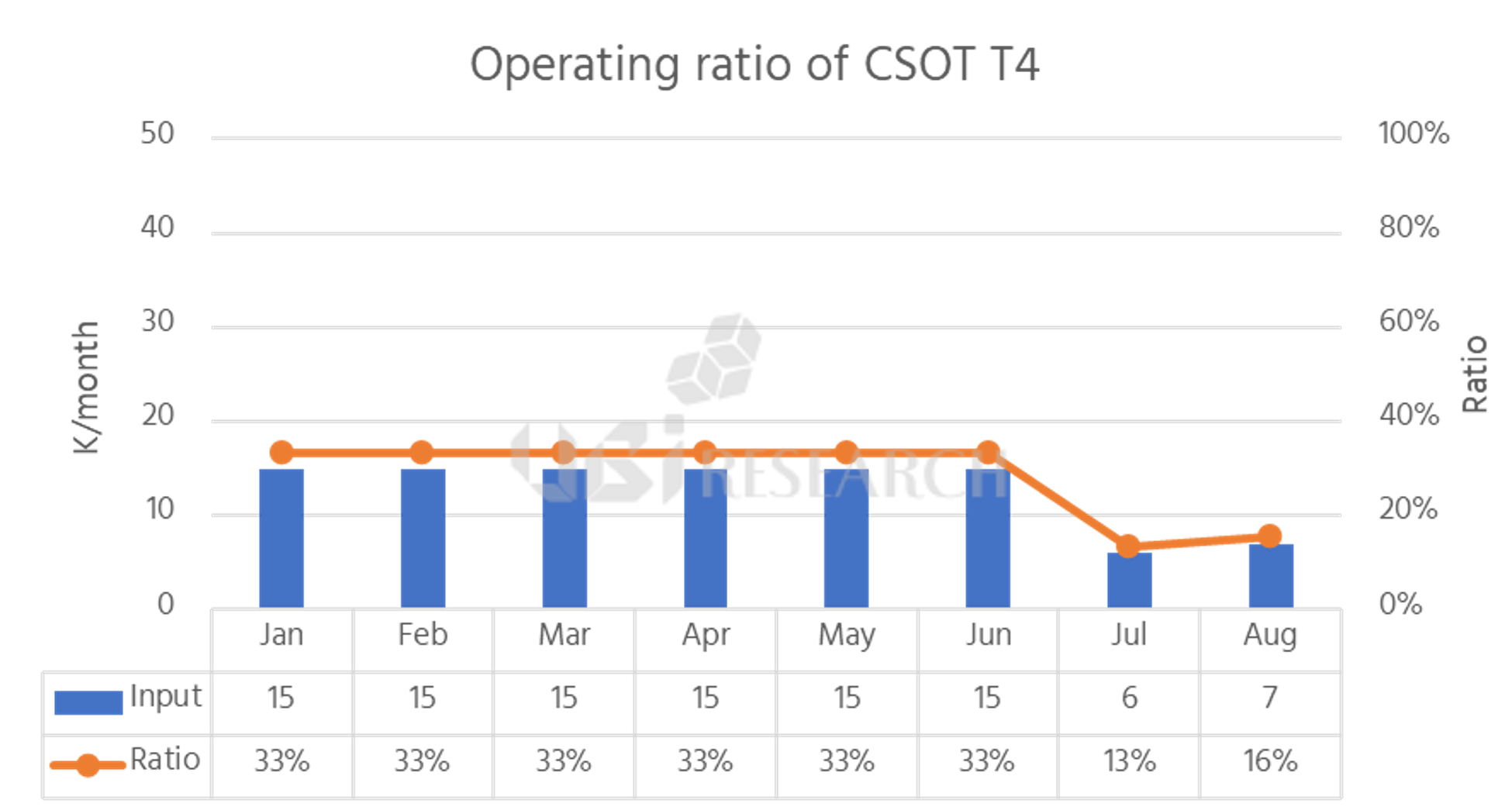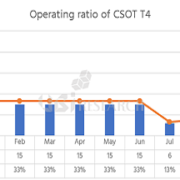Is China’s 6G flexible OLED line reorganized?
According to the ‘2022 OLED Display Semi-Annual Report’ recently published by UBI Research, it is predicted that the 6G flexible OLED line in China will be reorganized.
Representative companies that produce flexible OLED for smartphones in China are BOE, TCL CSOT, Tianma, and Visionox. EDO also owns some flexible OLED lines, but is mass-producing panels mainly for rigid OLED.
Among them, TCL CSOT and Visionox have recently continued to business difficulties, the possibility of reorganization of its flexible OLED line in China is being raised.
TCL CSOT mainly supplied panels to Xiaomi, but recently, due to panel performance issues and Tianma’s promotion, it was found that the 3Q utilization rate of the T4 line with a monthly capacity of 45K was only 10%.
In particular, the operation of ph-3 is being delayed indefinitely due to the low utilization rate of ph-1,2. In addition, TCL CSOT has tried to promote the panel supply for the Apple iPhone series, but it does not seem to get good results.

Utilization rate of TCL CSOT T4 line until August 2022, Source: 2022 OLED Display Semi-Annual Report
Visionox, which mainly supplies flexible OLED to Honor, has recently been operating the V3 line with a monthly scale of 30K, but the panel price is set at $30 or less, and its sales are greatly affected. It is a situation in which the utilization rate is guaranteed by securing a clear customer, but profits are not guaranteed.
For this reason, there is a possibility that BOE will take over the T4 line of TCL CSOT and the V3 line of Visionox. Daejeong Yoon, an analyst at UBI Research, said, “In the case of the T4 line, if BOE puts OLED facilities into the B20 LTPS line in the future, the possibility of taking over the T4 line of TCL CSOT and using it, or after the sale of the V3 line from Visionox, there is a possibility to acquire a part of the T4 line. In the case of the V3 line, it is also heard that the Hefei government has offered to acquire BOE.”
Although it is unlikely that China’s 6G flexible OLED line will change rapidly right now, attention is focused on how Chinese panel makers will continue to operate their lines in the future in a situation that has been evaluated as over-investment in the past and the market stagnation.


 2022 Small OLED Display Semi-Annual Report Sample Download
2022 Small OLED Display Semi-Annual Report Sample Download
